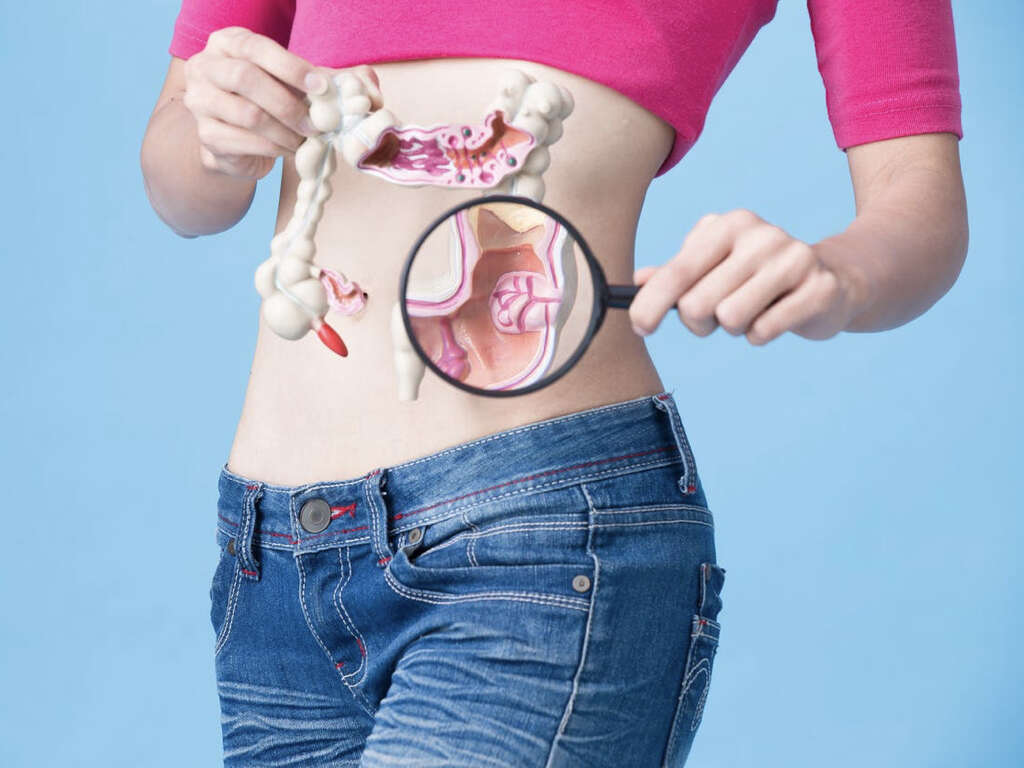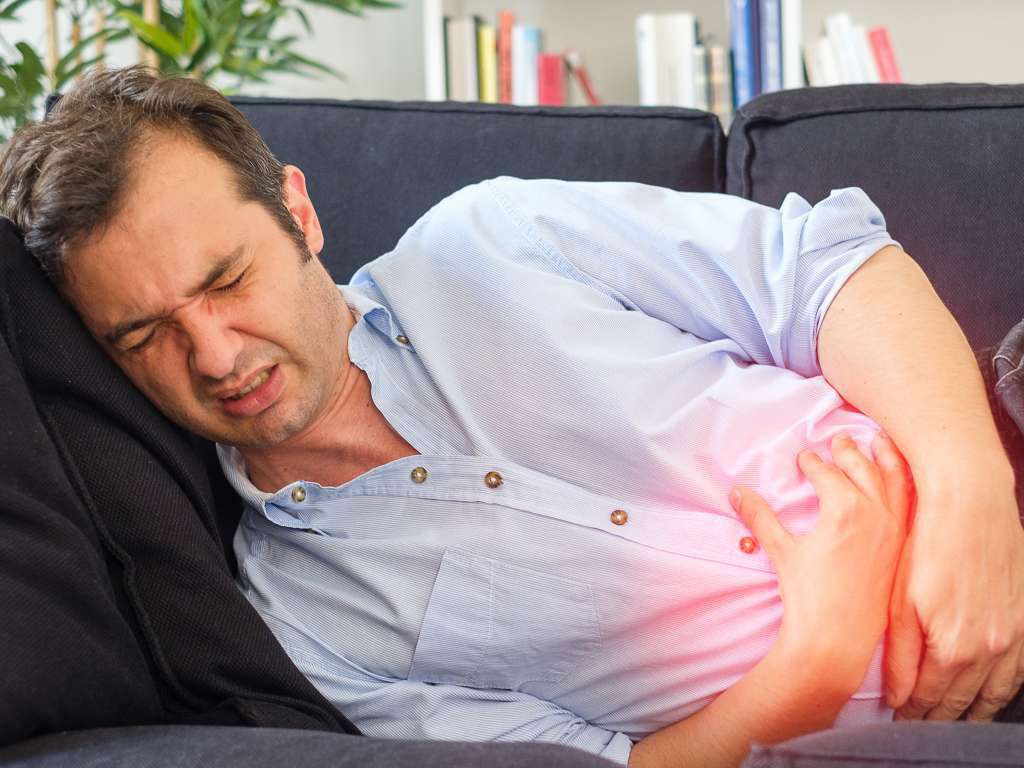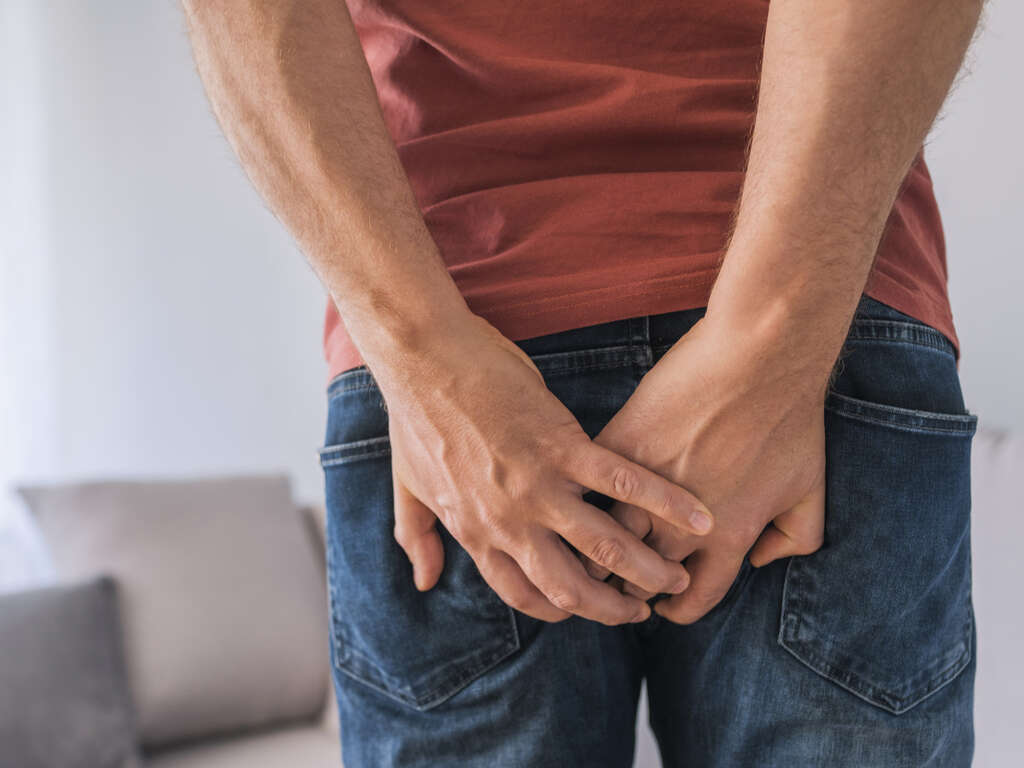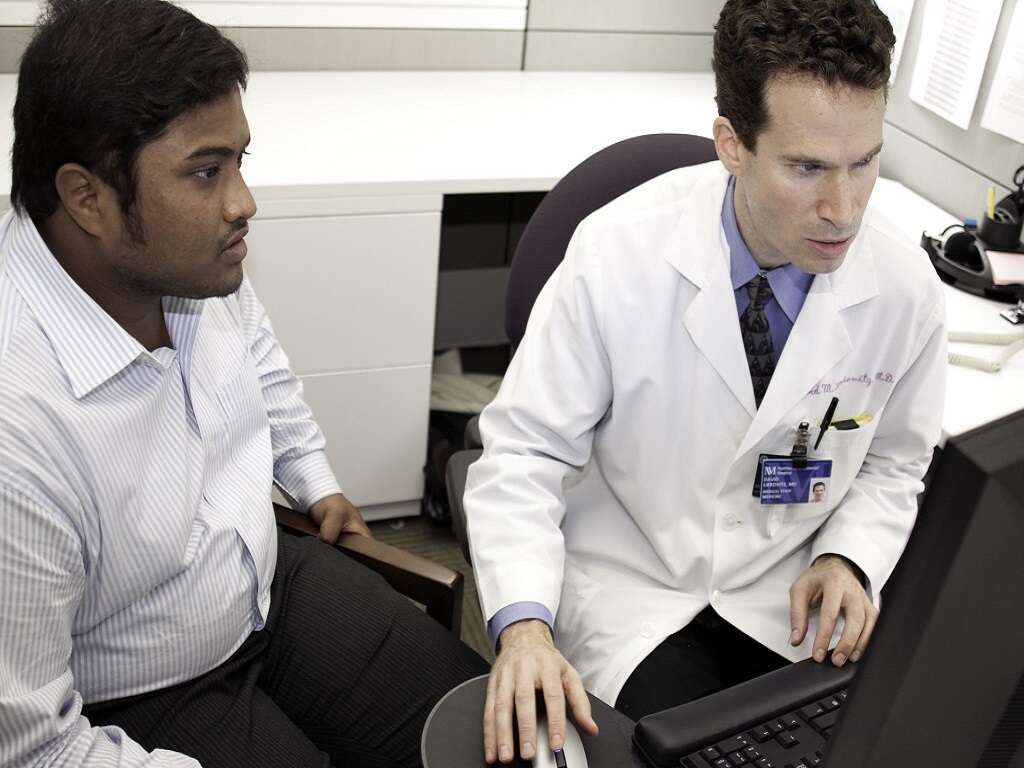Why Is My Poop Black?
 Article Sources
Article Sources
- 1. Michael F. Picco, M.D. 'Stool Color: When to Worry.' Mayo Clinic, Mayo Foundation for Medical Education and Research, 10 Oct. 2020, www.mayoclinic.org/stool-color/expert-answers/faq-20058080.
- 2. 'Iron & Oral Supplements for Anemia: Types & Benefits.' Cleveland Clinic, my.clevelandclinic.org/health/articles/14568-oral-iron-supplementation.
- 3. 'Iron Supplement (Oral Route, Parenteral Route) Side Effects.' Mayo Clinic, Mayo Foundation for Medical Education and Research, 1 Mar. 2021, www.mayoclinic.org/drugs-supplements/iron-supplement-oral-route-parenteral-route/side-effects/drg-20070148.
- 4. 'Bismuth Subsalicylate: MedlinePlus Drug Information.' MedlinePlus, U.S. National Library of Medicine, medlineplus.gov/druginfo/meds/a607040.html.
- 5. 'Bismuth Subsalicylate (Oral Route) Side Effects.' Mayo Clinic, Mayo Foundation for Medical Education and Research, 1 Feb. 2021, www.mayoclinic.org/drugs-supplements/bismuth-subsalicylate-oral-route/side-effects/drg-20068521?p=1.
- 6. 'Stools with Blood.' University of Iowa Hospitals & Clinics, 9 Nov. 2018, uihc.org/health-topics/stools-blood.
- 7. Commissioner, Office of the. 'Black Licorice: Trick or Treat?' U.S. Food and Drug Administration, FDA, www.fda.gov/consumers/consumer-updates/black-licorice-trick-or-treat.
- 8. 'Rectal Bleeding: Causes, Colors, Tests & When To Call The Doctor.' Cleveland Clinic, my.clevelandclinic.org/health/symptoms/14612-rectal-bleeding.
- 9. 'Peptic Ulcer.' Mayo Clinic, Mayo Foundation for Medical Education and Research, 6 Aug. 2020, www.mayoclinic.org/diseases-conditions/peptic-ulcer/symptoms-causes/syc-20354223.
- 10. 'Esophageal Cancer.' NORD (National Organization for Rare Disorders), 15 Aug. 2019, rarediseases.org/rare-diseases/esophageal-cancer/.
- 11. 'Colon Cancer Symptoms.' Johns Hopkins Medicine, www.hopkinsmedicine.org/health/conditions-and-diseases/colon-cancer/colon-cancer-symptoms.
- 12. 'Mallory Weiss Syndrome.' NORD (National Organization for Rare Disorders), rarediseases.org/rare-diseases/mallory-weiss-syndrome/.
- 13. 'Esophageal Varices.' Mayo Clinic, Mayo Foundation for Medical Education and Research, 20 Feb. 2021, www.mayoclinic.org/diseases-conditions/esophageal-varices/symptoms-causes/syc-20351538.
- 14. 'Arteriovenous Malformations.' Seattle Children's Hospital, www.seattlechildrens.org/conditions/avm/.
- 15. 'Black or Tarry Stools: MedlinePlus Medical Encyclopedia.' MedlinePlus, U.S. National Library of Medicine, medlineplus.gov/ency/article/003130.htm.
- 16. 'Gastrointestinal Bleeding.' Mayo Clinic, Mayo Foundation for Medical Education and Research, 15 Oct. 2020, www.mayoclinic.org/diseases-conditions/gastrointestinal-bleeding/symptoms-causes/syc-20372729.
- 17. 'Gastrointestinal Bleeding or Blood in the Stool.' Johns Hopkins Medicine, www.hopkinsmedicine.org/health/conditions-and-diseases/gastrointestinal-bleeding-or-blood-in-the-stool.
Stool is normally a shade of brown. Largely influenced by the foods consumed and the amount of bile present, stool can range from light to dark brown. It may even be green under some circumstances. Usually, stool color isn't significant, but there are some instances when stool color merits medical evaluation.
Stool that's black in color may warrant a trip to the doctor because it may indicate the presence of bleeding in the upper gastrointestinal tract. On the other hand, black stool may occur as a result of eating certain foods or taking various medications or supplements.1Michael F. Picco, M.D. ‘Stool Color: When to Worry.’ Mayo Clinic, Mayo Foundation for Medical Education and Research, 10 Oct. 2020, www.mayoclinic.org/stool-color/expert-answers/faq-20058080.
1. Iron Supplements and Black Poop
The human body requires adequate iron intake to produce hemoglobin, which helps transport red blood cells throughout the body. People who experience excessive blood loss, follow a low-iron diet or have a need for higher iron intake due to conditions such as pregnancy or poor iron absorption may take iron supplements to prevent anemia.
While iron supplements are effective in helping the body build its iron reserves, they can cause unwanted side effects, such as black stools. Gastrointestinal symptoms, including heartburn, constipation, stomach pain and cramping, may also occur. People who experience these side effects should seek advice from their health care provider.2‘Iron & Oral Supplements for Anemia: Types & Benefits.’ Cleveland Clinic, my.clevelandclinic.org/health/articles/14568-oral-iron-supplementation.,3‘Iron Supplement (Oral Route, Parenteral Route) Side Effects.’ Mayo Clinic, Mayo Foundation for Medical Education and Research, 1 Mar. 2021, www.mayoclinic.org/drugs-supplements/iron-supplement-oral-route-parenteral-route/side-effects/drg-20070148.
2. Bismuth Subsalicylate and Black Poop
Bismuth subsalicylate is a medication that treats diarrhea, heartburn and stomach upset in people over age 12. It reduces intestinal inflammation, decreases the amount of fluids and electrolytes entering the intestines and may destroy diarrhea-causing microbes.
As one of its side effects, bismuth subsalicylate may cause black stools and a darkened tongue. These effects are benign and usually disappear when the person stops taking the medication. Other possible side effects include ringing in the ears and inaccurate urine sugar tests.4‘Bismuth Subsalicylate: MedlinePlus Drug Information.’ MedlinePlus, U.S. National Library of Medicine, medlineplus.gov/druginfo/meds/a607040.html.,5‘Bismuth Subsalicylate (Oral Route) Side Effects.’ Mayo Clinic, Mayo Foundation for Medical Education and Research, 1 Feb. 2021, www.mayoclinic.org/drugs-supplements/bismuth-subsalicylate-oral-route/side-effects/drg-20068521?p=1.

3. Foods That Cause Black Poop
Eating large quantities of certain foods may cause bowel movements to appear black. Common culprits include blueberries, black licorice and dark leafy vegetables.6‘Stools with Blood.’ University of Iowa Hospitals & Clinics, 9 Nov. 2018, uihc.org/health-topics/stools-blood.
For people over age 40 with a history of heart disease or high blood pressure, or both, consuming two or more ounces of black licorice daily for two weeks or more may lower potassium levels in the body, leading to heart rhythm abnormalities, elevated blood pressure, lethargy, swelling and congestive heart failure. Side effects end with no long-term impact when consumption of black licorice ceases.7Commissioner, Office of the. ‘Black Licorice: Trick or Treat?’ U.S. Food and Drug Administration, FDA, www.fda.gov/consumers/consumer-updates/black-licorice-trick-or-treat.
4. Bleeding Ulcer and Black Poop
If the lining of the digestive tract becomes damaged, perforations known as ulcers may form, and bleeding may occur. This bleeding may cause stool to have a black, tarlike appearance.8‘Rectal Bleeding: Causes, Colors, Tests & When To Call The Doctor.’ Cleveland Clinic, my.clevelandclinic.org/health/symptoms/14612-rectal-bleeding.
Often caused by the bacterium Helicobacter pylori (H. pylori) or excessive use of nonsteroidal anti-inflammatory medications, ulcers may also cause heartburn, bloating, nausea and intolerance of fatty foods. Smoking, eating spicy foods, drinking alcohol and untreated stress may increase one's risk of developing ulcers.9‘Peptic Ulcer.’ Mayo Clinic, Mayo Foundation for Medical Education and Research, 6 Aug. 2020, www.mayoclinic.org/diseases-conditions/peptic-ulcer/symptoms-causes/syc-20354223.

5. Esophageal Cancer and Black Poop
Esophageal cancer presents with abnormal cell growth on the tissues of the esophagus, the food pipe that connects the throat to the stomach. This disease may produce no symptoms at first, but eventually, tumors grow large enough to interfere with the swallowing of food.
Bleeding that occurs in the esophagus and elsewhere in the gastrointestinal tract may cause stools to appear black. The bleeding may also cause anemia, resulting in symptoms that include pallor, lightheadedness and fatigue.10‘Esophageal Cancer.’ NORD (National Organization for Rare Disorders), 15 Aug. 2019, rarediseases.org/rare-diseases/esophageal-cancer/.
6. Stomach Cancer and Black Poop
Stomach cancer is another possible cause of black stools since the disease may cause bleeding in the stomach. As in the case of esophageal cancer, anemia may develop due to the bleeding.
A person with stomach cancer may also notice bowel changes, such as diarrhea or constipation, narrow stool and changes in frequency of bowel movements. Other symptoms may include nausea and vomiting, diminished appetite and weight loss, fatigue, and abdominal pain and bloating.1Michael F. Picco, M.D. ‘Stool Color: When to Worry.’ Mayo Clinic, Mayo Foundation for Medical Education and Research, 10 Oct. 2020, www.mayoclinic.org/stool-color/expert-answers/faq-20058080.

7. Mallory-Weiss Tear and Black Poop
Black or tarlike stools may indicate the presence of a Mallory-Weiss tear, torn tissue in the lower esophagus. Violent and protracted coughing or vomiting often causes this condition, but it's also associated with alcoholism, hiatus hernia, trauma to the chest, chemotherapy and inflammation of the stomach or esophageal lining.
If severe blood loss occurs, the person may experience shock and collapse. Often, the bleeding stops on its own, but if it doesn't, treatments involve cauterization, blood transfusions and administration of the vasopressive drug, pitressin.12‘Mallory Weiss Syndrome.’ NORD (National Organization for Rare Disorders), rarediseases.org/rare-diseases/mallory-weiss-syndrome/.
8. Esophageal Varices and Vascular Malformation
Esophageal varices are large veins that form in the esophagus due to blocked blood flow to the liver. If they bleed, black, tarry stools may be present, along with jaundice, and the person may vomit blood and coffee ground-like vomit.13‘Esophageal Varices.’ Mayo Clinic, Mayo Foundation for Medical Education and Research, 20 Feb. 2021, www.mayoclinic.org/diseases-conditions/esophageal-varices/symptoms-causes/syc-20351538.
Sometimes, blood vessels don't form properly in the lining of the gastrointestinal tract, and they swell to a point where they may burst and bleed. If this happens, dark, tarry stools may occur. The person may also vomit blood.14‘Arteriovenous Malformations.’ Seattle Children’s Hospital, www.seattlechildrens.org/conditions/avm/.
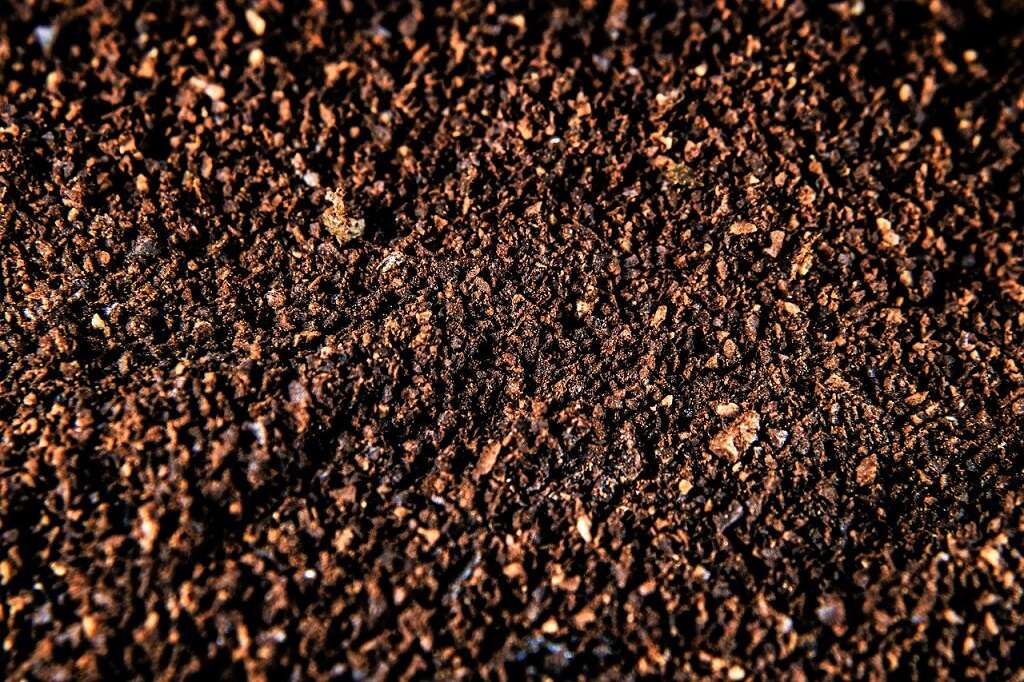
9. Diagnosing the Cause of Black Stool
To determine the cause of black stool, the health care provider reviews the person's medical history and symptoms before conducting a physical exam of the rectum and anus. They're likely to perform a fecal blood test to find out if blood is present in the stool.8‘Rectal Bleeding: Causes, Colors, Tests & When To Call The Doctor.’ Cleveland Clinic, my.clevelandclinic.org/health/symptoms/14612-rectal-bleeding.
The person may undergo endoscopy or colonoscopy, procedures that allow examination of the intestinal tract to help determine the cause of the dark stool and other gastrointestinal symptoms. Other tests may include stool cultures and blood studies.15‘Black or Tarry Stools: MedlinePlus Medical Encyclopedia.’ MedlinePlus, U.S. National Library of Medicine, medlineplus.gov/ency/article/003130.htm.
10. Preventing Black Stool
Living a healthy lifestyle may help prevent the development of conditions that lead to black stool. Avoiding smoking, limiting the intake of alcohol and use of nonsteroidal anti-inflammatory medications are helpful.16‘Gastrointestinal Bleeding.’ Mayo Clinic, Mayo Foundation for Medical Education and Research, 15 Oct. 2020, www.mayoclinic.org/diseases-conditions/gastrointestinal-bleeding/symptoms-causes/syc-20372729.
Following instructions for taking iron supplements and stomach remedies that contain bismuth subsalicylate may also help prevent black stool. Persons recovering from gastrointestinal bleeding issues should take prescribed medications as directed to avoid recurrence of black stool and related symptoms.17‘Gastrointestinal Bleeding or Blood in the Stool.’ Johns Hopkins Medicine, www.hopkinsmedicine.org/health/conditions-and-diseases/gastrointestinal-bleeding-or-blood-in-the-stool.




